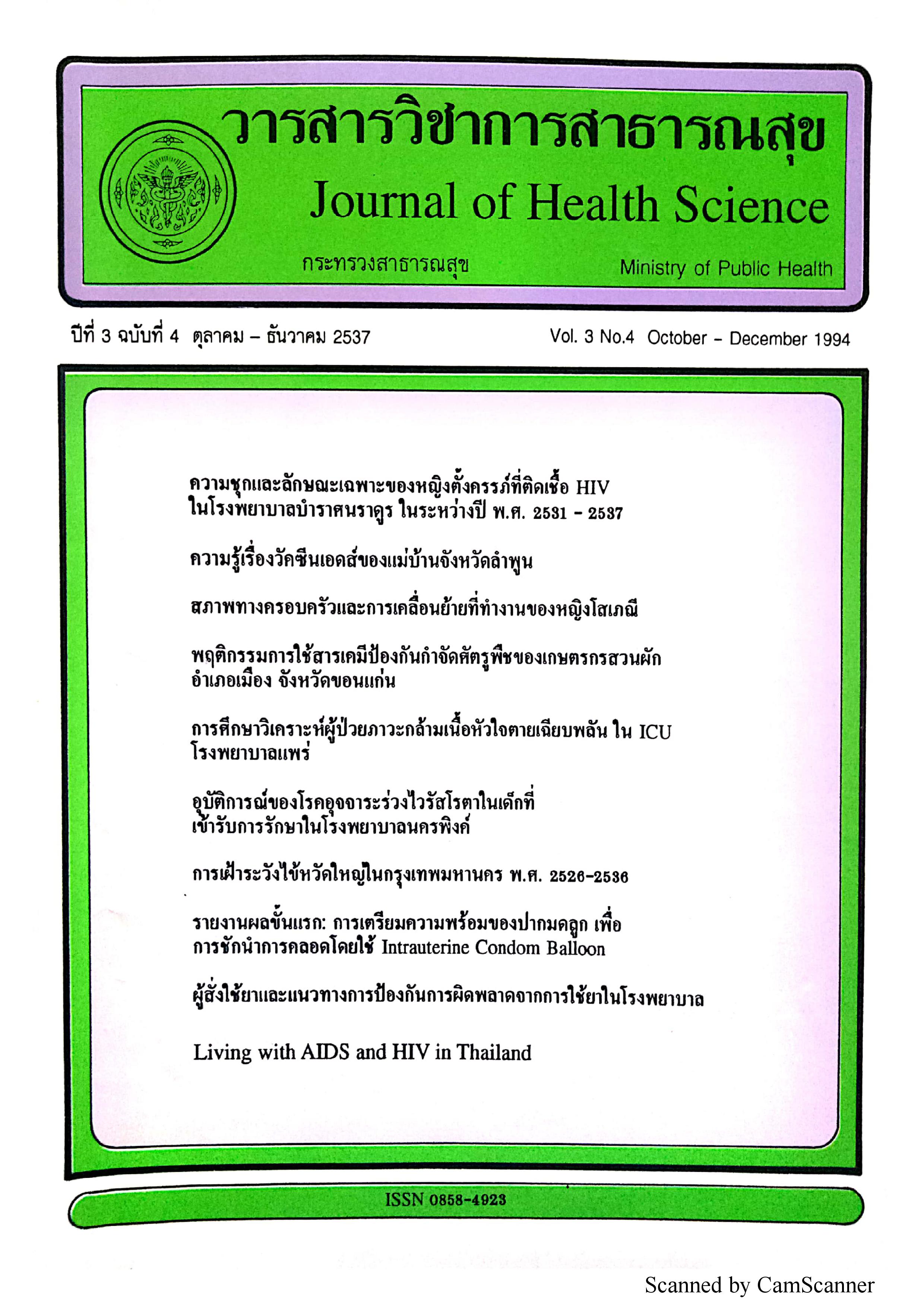Family Status and Changing Workplace of Songkhla Commercial Sex Workers
Abstract
The STD and AIDS Regional Centre 12 has studied the social status and changing work-place of 450 Songkhla commercial sex-workers in August w November 1992. The results of this study were as follows:
1. Most of the female commercial sex workers came from the north (54.44%), norm-east (20.00%). Their mean income was 4238.33 baht/month. They had to take care of their parents (68.00%), send their children to study (10.00%) and build their houses (4.89%).
2. The sex-workers had changed their work-pl ace at least once (41. l l 70), including movement in the same province (32.42%)a movement across the province (67.57%). Songkran holiday was the most common period for them to go back home (58.07%).
3. The sex-workers were more from the North than other from regions (P<0.05).
4. The income per month and the responsibility in taking care of their parents were not statistically significance with the thought to change their work-place, (P>0.05).
As the result of this study, a good and effective follow-up system of these. female sex-workers should be established in order to be more effective in the prevention and control of STD and AIDS.
Downloads
Downloads
Published
How to Cite
Issue
Section
License
Copyright (c) 1994 Ministry of Public Health

This work is licensed under a Creative Commons Attribution-NonCommercial-NoDerivatives 4.0 International License.







